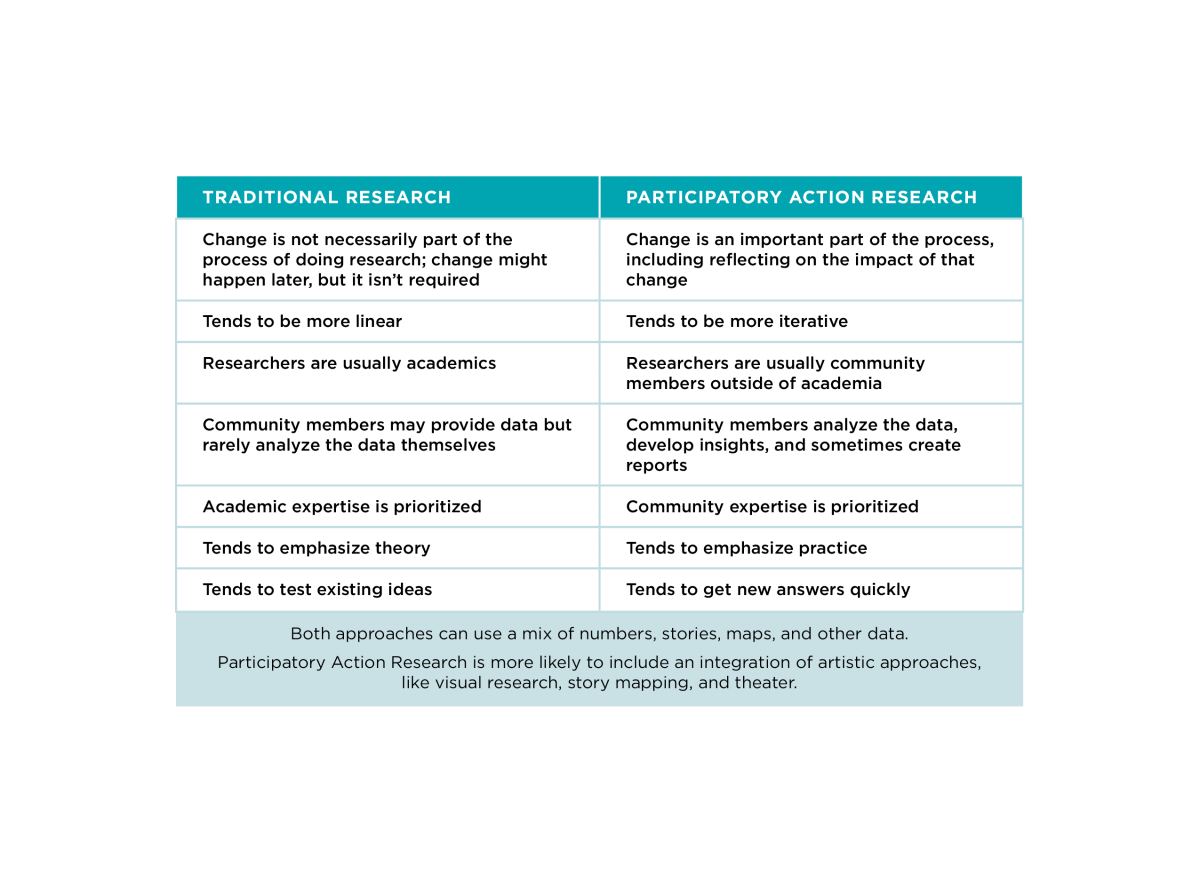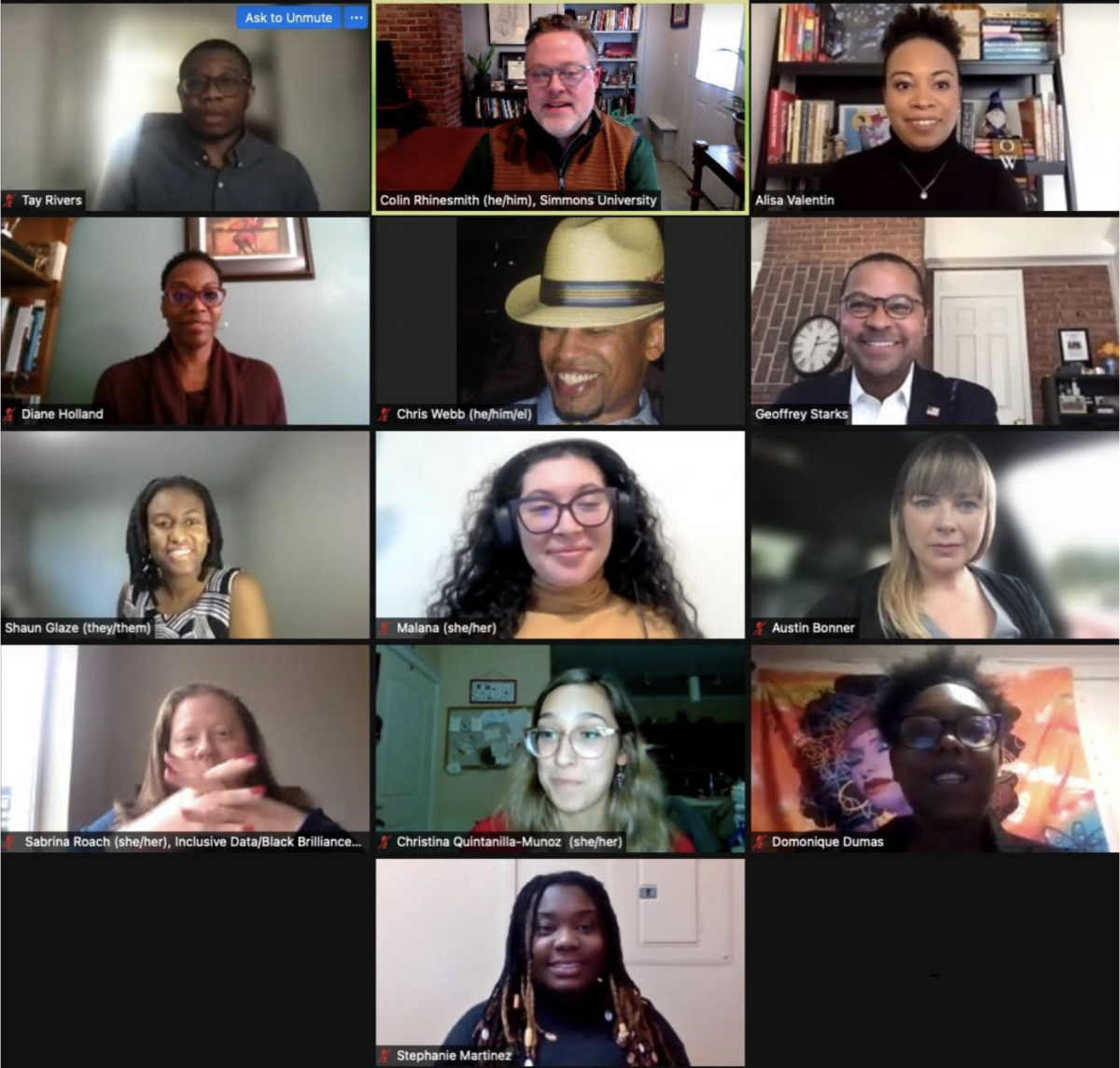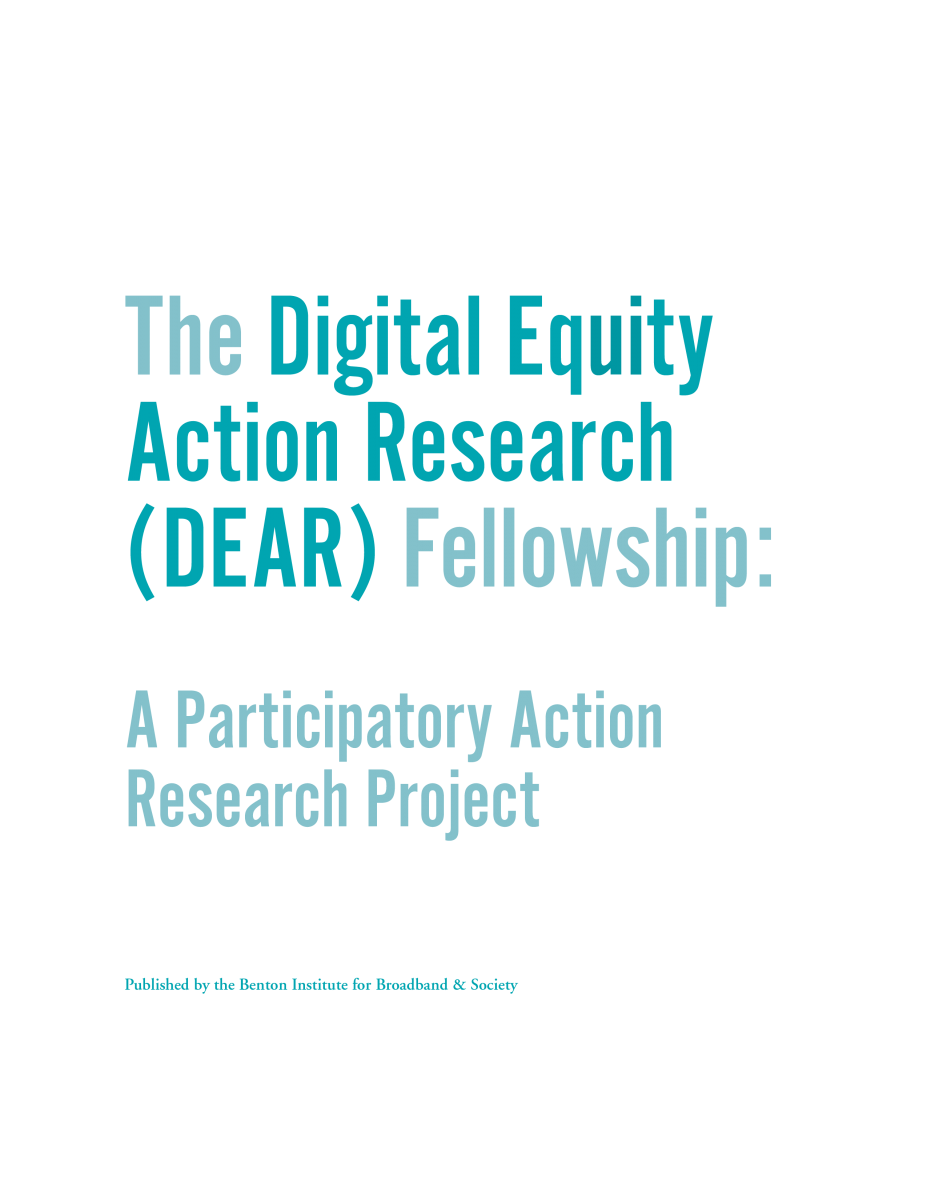The Digital Equity Action Research Fellowship
Tuesday, July 12, 2022
Digital Beat
The Digital Equity Action Research Fellowship
Written by Shaun Glaze, Colin Rhinesmith, Chris Webb, and Sabrina Roach (see bios below)
In November 2021, the Benton Institute for Broadband & Society, Black Brilliance Research Project (BBR), and Community Informatics Lab at Simmons University launched the six-city Digital Equity Action Research (DEAR) Fellowship. The DEAR Fellowship helped young adults, ages 19–24, learn participatory action research skills to examine and address the root causes of digital inequities in their communities.
Participatory Action Research (PAR) is different from traditional research paradigms. PAR should be used to both investigate and change—shaping the design of new initiatives, informing the execution of campaigns, and increasing the understanding of issues.

PAR “centers the wisdom, leadership, and expertise of those closest to the issues,” said Shaun Glaze, research lead and director of Black Brilliance Research. “Doing this work well means disrupting systems of oppression and creating spaces where communities can explore—and create—their own solutions. This involves listening to those closest to the issues, not just listening to the problems created by digital injustice, but co-creating the solutions that Black and Brown people need to thrive.”
As part of this initiative, one organization in each of the six participating cities—Baltimore; Boston; Cleveland; Long Beach, California; San Antonio; and Seattle—took part in the fellowship and hosted one DEAR Fellow.
The fellows and their host organizations received a stipend for their work on the project for a two-month period from the Benton Institute for Broadband & Society’s Marjorie & Charles Benton Opportunity Fund. The Robert W. Deutsch Foundation partnered on the project to underwrite the participation of Baltimore's Village Learning Place and its DEAR Fellow.
The end goal of the fellowship was to increase the skills and capacity of the DEAR Fellows and their communities and to identify and address the root causes of digital inequities while learning from peers around the United States. The fellows learned new participatory action research skills, an approach that brings together advocacy and research methods to create change with those closest to the problems in community settings.
The fellows also had an opportunity to meet with Federal Communications Commissioner Geoffrey Starks and his staff to discuss some of the pressing issues affecting their communities and present their research direction. FCC staff noted that the fellows’ insights resonated with the complexities of the FCC’s work to promote connectivity and ensure a robust and competitive market. Topics ranged from perspectives on existing structural inequities to thoughts on data collection and even insights on new developments with the World Wide Web.

The essays in this new publication are written by the DEAR Fellows in collaboration with their host organizations. Each essay focuses on digital equity issues that are important to the Fellows and their communities. In the pages that follow, we see their vision of what digital justice looks like in each of their communities.
Lidia Flores offers a holistic approach to promoting digital equity through several examples in Long Beach, California, where youth and adults used their “creativity, commitment, and empathy” to build healthy communities.
Tay Rivers writes about how he used his DEAR Fellowship as an opportunity to interview community leaders about digital equity in Baltimore. Through his interview with Cody Dorsey, the executive director of the Baltimore Digital Equity Coalition (BDEC), Tay learned more about how BDEC plans to utilize the Digital Navigators model to “supply curated services in a continual, one-on-one basis that combines customer service and technical support to ensure the needs of the community members are met.”
In her video interview with Community Organizer Nica Sy, Stephanie Martinez applied the research and interviewing skills that she gained during the DEAR Fellowship to examine the intersection of digital equity and survivorship.
A’Sarah Green of the East Cleveland Public Library, one of the host organizations, shares her insights on how both the library and DEAR Fellow Domonique Dumas benefited from this opportunity.
Christina Quintanilla-Muñoz’s deeply researched history of San Antonio’s digital equity ecosystem emphasizes the importance of community-power-building as a pathway to digital justice. Christina explains that the DEAR Fellowship provided her with an opportunity “to reimagine how digital equity in San Antonio could be achieved through a liberation framework that emphasizes the community's key role in achieving digital justice.” She offers three main goals that aim “to cultivate a dynamic, interconnected, and resilient ecosystem.”
And, as my colleague Malana Krongelb states in her report on digital inequality in Boston, “If the city government instead chooses to expand programming so that it acknowledges the historical roots of digital forms of discrimination, that wouldn’t just address broadband adoption. That would be justice at work.”
 The stories shared by the DEAR fellows and their host organizations in this publication only begin to represent what is possible when communities engage in their own research to promote digital equity and justice.
The stories shared by the DEAR fellows and their host organizations in this publication only begin to represent what is possible when communities engage in their own research to promote digital equity and justice.
As states develop their Digital Equity Plans so they can qualify for digital equity funding from the National Telecommunications and Information Administration, my hope is that the stories and examples found in this publication offer both guidance and inspiration for what’s possible when community members have a seat at the table. This participation not only benefits communities most impacted by the digital divide, it is also a requirement in the Infrastructure Investment and Jobs Act.
Shaun Glaze is Research Lead and Director at the Black Brilliance Research Project and one of the designers and facilitators of the curriculum for this inaugural DEAR Fellowship. Shaun is a participatory action researcher with over ten years of experience in collaborative research, facilitation, and training. Shaun has experience managing research projects for multidisciplinary collaborations across public, nonprofit, and private sectors.
Benton Senior Fellow Colin Rhinesmith (he/him) is the Founder and Director of the Digital Equity Research Center at the Metropolitan New York Library Council. He is also a member of the Scholars Council at the UCLA Center for Critical Internet Inquiry and Co-Editor-In-Chief of The Journal of Community Informatics.
Chris Webb is the Internet Access and Digital Equity Research Team Leader at Black Brilliance Research Project. Chris is a consultant, educator, and business owner. He consults in a wide variety of operational and specialized areas, including data analysis, systems analysis and management, digital strategy, and intellectual property management.
Sabrina Roach is a Digital Equity Advisor and the former Director of Strategic Partnerships, Inclusive Data in support of the Black Brilliance Research Project. Sabrina brings more than two decades of organizing for media and technology that serves all of us. While at the National Digital Inclusion Alliance, she facilitated development of the Digital Navigator model.
The Benton Institute for Broadband & Society is a non-profit organization dedicated to ensuring that all people in the U.S. have access to competitive, High-Performance Broadband regardless of where they live or who they are. We believe communication policy - rooted in the values of access, equity, and diversity - has the power to deliver new opportunities and strengthen communities.
© Benton Institute for Broadband & Society 2022. Redistribution of this email publication - both internally and externally - is encouraged if it includes this copyright statement.
For subscribe/unsubscribe info, please email headlinesATbentonDOTorg






